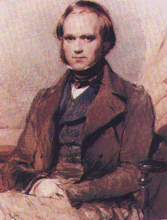
If you want to rile up a scientist, tell them that their understanding of how the world works is “just a theory.”
Remember, in scientific usage a theory is the strongest statement of confidence in explaining the natural world. The most powerful theories tie together apparently unrelated observations.
Evolutionary theory, including the hypothesis of common descent of all living things, is supported by observations as different as paleontological data—the sequence of fossils preserved in the sedimentary rock record; data from biogeography—the modern and fossil distribution of organisms world-wide; data from molecular biology--the close match between human and other primate DNA, data from comparative anatomy—the structural similarities between the skeletal systems of vertebrates from fish to mammals, data from developmental embryology—the discovery of genes common to all vertebrate groups and the role they play in development; among others.
In the sense of having broad support across many different scientific disciplines, evolutionary theory is much more strongly supported than gravitational theory.
Cartoon credit: http://wever.wordpress.com/2008/05/21/






